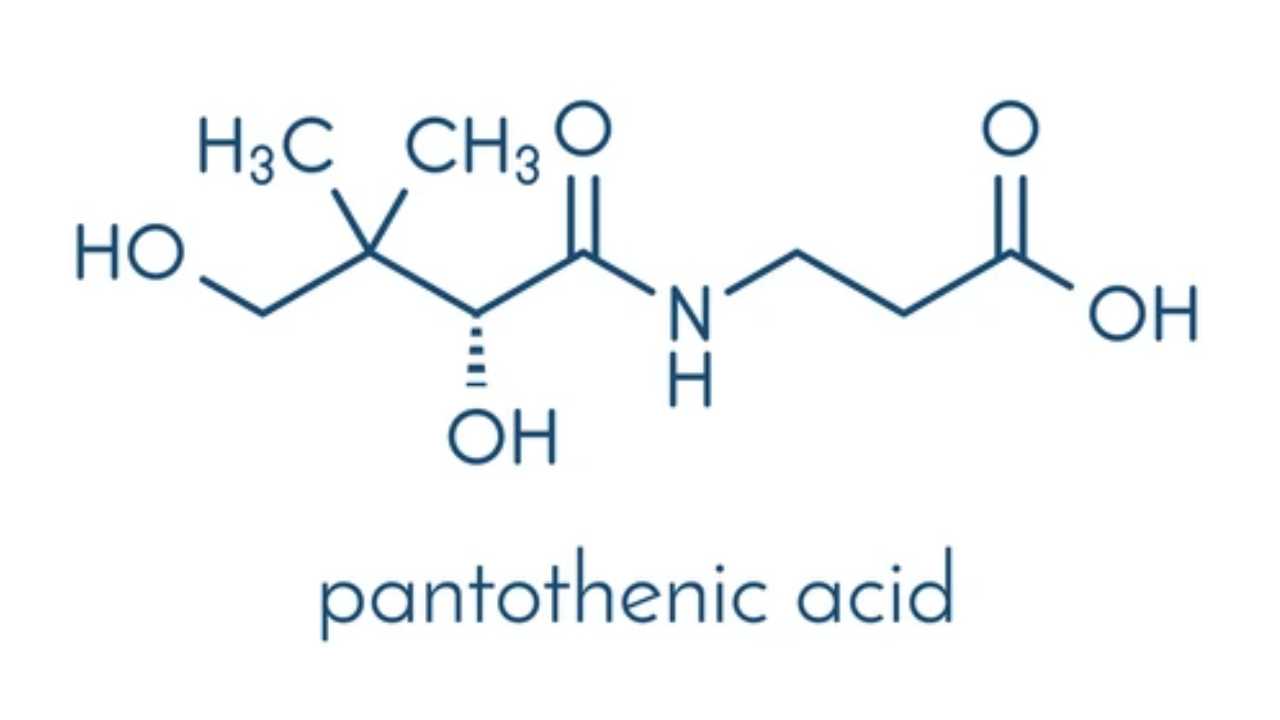Pantothenic Acid Deficiency and Its Impact on Ketosis
Did you know that a lesser-known vitamin could hold the key to your success with the ketogenic diet? Pantothenic acid, also known as vitamin B5, plays a pivotal role in our bodies, particularly in energy metabolism.
Yet, it often goes unnoticed in dietary planning. As more North Americans adopt a ketogenic lifestyle for weight loss or health benefits, understanding the impact of essential nutrients like pantothenic acid is crucial. So, what happens if you’re deficient in this vital vitamin? Could it affect your ketogenic journey?
In this article, we delve into the fascinating role of pantothenic acid in ketosis and how its deficiency can throw a wrench in your weight-loss goals. Stay with us to unravel this key to a successful keto diet.
Understanding Pantothenic Acid
Pantothenic acid might sound like a mouthful, but it’s another name for vitamin B5, an essential nutrient your body needs to function correctly. This vitamin plays a key role in the body’s energy production process. It helps convert your food into energy that your cells can use.
But how does it do this? The secret lies in a substance called Coenzyme A, which is produced by pantothenic acid. Coenzyme A is crucial for metabolizing fats, carbohydrates, and proteins – all the main nutrients you consume in your diet.
So where can you find this super vitamin? Pantothenic acid is widely available in a variety of foods, including whole grains, eggs, meat, legumes, and many fruits and vegetables. Because it’s found in many foods, most people get enough pantothenic acid from their diet without a supplement.
However, the story might differ for those on a ketogenic diet, which we’ll explore in the following sections.
Pantothenic Acid and Ketosis
Now that we understand the essential role pantothenic acid plays in our bodies let’s dive into how it interacts with the ketogenic diet and the state of ketosis.
First, let’s briefly explain the ketogenic diet. This low-carb, high-fat diet aims to shift the body’s primary energy from carbohydrates to fats. When you eat fewer carbs, your body must find another energy source. This leads your body to enter a metabolic state known as ‘ketosis,’ where it starts to burn fat for energy instead of carbs. The byproduct of this fat metabolism is substances called ‘ketones,’ which your body can also use for energy.
But what does pantothenic acid have to do with all this?
Remember how we said pantothenic acid plays a crucial role in energy metabolism by producing Coenzyme A? Here’s where it comes into play. Coenzyme A is essential for the production of ketones in your body. When your body breaks down fats for energy in ketosis, Coenzyme A acts like a key, unlocking the process that converts these fats into ketones.
That’s why pantothenic acid is essential for people on a ketogenic diet. Without adequate levels of this vitamin, your body might struggle to produce enough Coenzyme A and ketones. This could hinder the ketogenic diet’s success, as your body won’t be able to switch over to burning fat for energy fully.
Pantothenic Acid Deficiency: Causes and Symptoms
Pantothenic acid deficiency is uncommon because, as we mentioned earlier, this vitamin is found in many foods. However, certain circumstances and dietary choices could lead to lower levels of pantothenic acid in your body.
For instance, a diet heavily relying on processed foods can be lower in pantothenic acid, as this vitamin can be lost during food processing. Similarly, those following a ketogenic diet might find it challenging to get enough pantothenic acid if they’re not carefully planning their meals.
Since the ketogenic diet focuses on high-fat, low-carb foods, it’s important to choose foods that are not only keto-friendly but also rich in essential nutrients, including pantothenic acid.
So, what happens if you don’t get enough pantothenic acid?
In truth, because pantothenic acid deficiency is relatively rare, the symptoms are not as well-studied as some other nutrient deficiencies. However, some reported symptoms include fatigue, irritability, sleeping problems, and stomach discomfort. A deficiency might lead to symptoms like numbness and muscle cramps in severe cases.
These symptoms sound quite general and could be associated with many other conditions, making a pantothenic acid deficiency hard to spot. But your pantothenic acid intake might be worth considering if you’re on a ketogenic diet and experiencing these symptoms without any clear cause.
Impact of Pantothenic Acid Deficiency on Ketosis
If you’re following a ketogenic diet, pantothenic acid is indispensable. Let’s delve into what happens when this vital nutrient is deficient.
As we’ve discussed, pantothenic acid is crucial for creating Coenzyme A, which is critical to metabolizing fat and producing ketones. In a state of deficiency, the production of Coenzyme A can be hindered. This could affect your body’s ability to produce ketones effectively, despite being on a low-carb, high-fat diet.
Simply put, without enough pantothenic acid, your body might struggle to switch its fuel source from carbs to fats. This could mean you’re less likely to experience the benefits of the ketogenic diet, such as weight loss, increased energy levels, and improved cognitive function. You might also find it harder to maintain the state of ketosis, even if you strictly adhere to a low-carb diet.
Moreover, the symptoms associated with pantothenic acid deficiency, such as fatigue and irritability, could make it harder for you to stick to the ketogenic diet. After all, it’s tough to maintain a diet change when you’re not feeling your best.
So, while a deficiency in pantothenic acid might not directly prevent ketosis, it could potentially make the process more challenging and less effective. The next section will explore strategies to prevent this deficiency and ensure you get enough of this essential vitamin on a ketogenic diet.
Addressing Pantothenic Acid Deficiency in a Ketogenic Diet
Knowing the vital role of pantothenic acid in ketosis, how can you ensure you get enough of it while following a ketogenic diet? Here are some strategies:
Choose Nutrient-Dense Foods
Even within the framework of a ketogenic diet, there are plenty of food options that are not only low-carb but also rich in pantothenic acid. Avocados, for instance, are a great source of this vitamin and perfectly align with the high-fat, low-carb principle of the keto diet. Certain types of fish and shellfish, eggs, cheese, and poultry also contain pantothenic acid and are keto-friendly.
Diversify Your Diet
Even though the ketogenic diet involves reducing your carb intake, it doesn’t mean you should eliminate all fruits and vegetables, many of which contain pantothenic acid. Non-starchy vegetables, like spinach, broccoli, and kale, are low in carbs but high in many essential nutrients. Various foods can help you get enough pantothenic acid and other vitamins and minerals.
Consider Supplements

Consider a dietary supplement if you struggle to get enough pantothenic acid from your diet alone. Pantothenic acid supplements are widely available and can help fill nutritional gaps. Always remember that supplements should not replace a balanced diet.
Monitor Your Health
Keep an eye on how you feel physically and mentally. Getting your nutrient levels checked might be worth getting your nutrient levels checked if you’re experiencing symptoms like fatigue, irritability, or digestive discomfort. A healthcare provider can perform tests to determine if you’re deficient in pantothenic acid or other vital nutrients.
Conclusion
The journey to healthier living through the ketogenic diet is rewarding but requires attention to detail. As we’ve discovered, pantothenic acid, a seemingly obscure vitamin, is pivotal in making your ketogenic journey successful.
By understanding its importance and ensuring its sufficient intake, you can maximize the benefits of ketosis and achieve your wellness goals more effectively. Remember, the key to a successful diet change isn’t just about cutting carbs or adding fats – it’s also about nourishing your body with all the essential nutrients it needs.
So, empower your keto journey with the power of pantothenic acid, and let’s move towards a healthier, more energetic you!












Leave a Reply